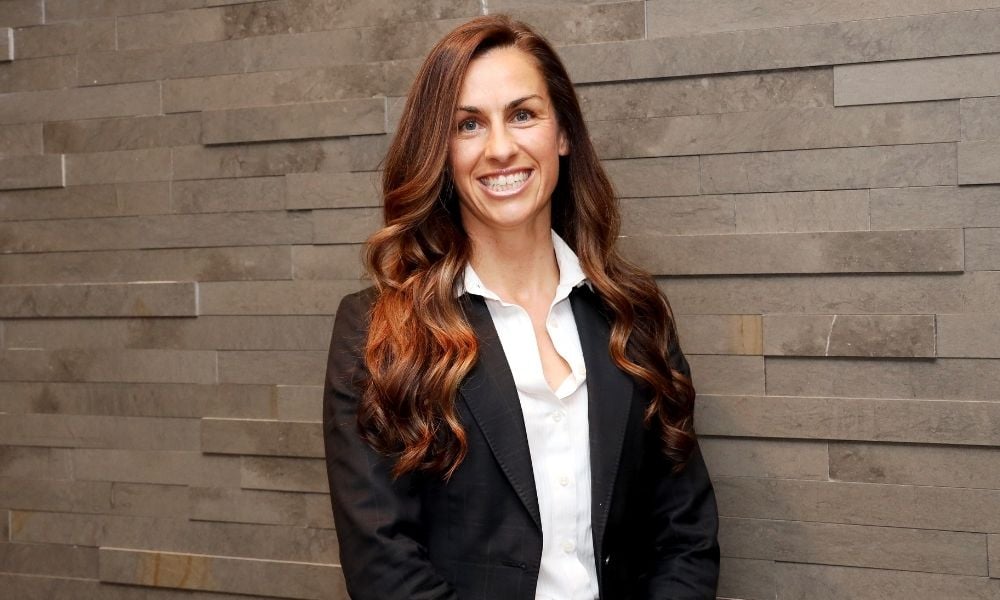La Trobe Financial's Michelle Bannister uses her own experience of rising through the ranks to support other women

Since starting out in the mailroom at La Trobe Financial 25 years ago, Michelle Bannister has worked her way up the ranks at the non-bank lender to her current position as senior executive – head of distribution.
Bannister puts a lot of this down to the support she has received from the organisation, which has helped her grow and develop not only in her career but as a person.
Now, she wants to support more women to choose a career in broking and finance. Heading up a team of 35, she enjoys mentoring and helping other people succeed.
La Trobe Financial provides tailored training and education for its female employees, as well as ‘women in finance’ events with inspiring female speakers.
In order to boost the number of women in the industry, Bannister believes promotion and messaging via industry bodies is needed to show women how broking has changed and now offers work-life balance.
Beyond that, the industry has also come a long way towards being seen as a professional career path, by implementing and promoting a number of key qualifications and training programs. As a result, broking has become more appealing to younger people as an profession they can join out of school or university.
“Traditionally, a typical broker was a retired banker who had been working for over 20 years within the banking sector, took a package from the bank and moved into finance broking as a natural fit for their skill set and an opportunity for them to run their own business,” Bannister says.
“There is nothing fundamentally wrong with this, other than that perhaps broking was something people did after their careers, rather than a profession that people aspired to at the beginning of their careers. More recently, we have experienced a maturing of the broking industry as it moves further towards being recognised as a true ‘professional service’.”
Helping mentees reach their goals
Having seen both positive and negative changes over her years in finance, Bannister is using her experience to mentor others. Mentoring is something she believes the industry has become very good at over the last five to 10 years and is offered to both men and women. These kinds of opportunities were not available when she started her journey, when young females were often afraid to ask for support or guidance in the event they were seen as failing.
“If I can share a little of my experience to help support and lead others in their career, in leadership or in their own business, then I see this as my way of giving back to an industry that has provided a great pathway for me,” she says.
Some of the areas in which mentees often need help include converting leads, tailoring different sales approaches, learning the best ways to listen, and building a solid team.
One thing Bannister also teaches her mentees is “how to dust yourself off and try again” when you don’t achieve a goal the first time. She says the importance of doing this is often overlooked, as the path to reaching your goals is not always steady, and resilience and determination are two qualities she promotes very strongly.
When Bannister is mentoring others, she tries to put herself in the mentees’ shoes, thinking back to how she felt when she entered the industry and identifying what her key learnings were at the time.
“I usually like to challenge people to identify what’s going to set them aside from others in a similar role, and how they can make an impact and brand for themselves in what is often a crowded room – I find this to be a great starting point for working towards achieving their goals,” Bannister says.
“Everyone has a different journey, and if I can assist in playing a small part through mentoring, then hopefully it helps the overall experience of the mortgage industry.”
The importance of female mentors
Regardless of gender, it’s important to have a mentor you can trust, respect and admire. But for many women, having a female mentor to look up to is really important.
Bannister says she is a big believer in women being able to identify with and look to female leaders and mentors. For instance, it can be hard for a woman to admit to a male colleague or mentor that there are times when she needs help or support in her career, but it’s much easier to open up to other women in the industry and lean in for advice, as they have often faced similar challenges.
“The majority of the time we are facing the same challenges others have already faced, so if we can be seen to share some of our knowledge and experience, then we’re set to make the overall industry a better place,” Bannister says.
“I believe that female leaders and executives within business light a path for opportunity and career progression for other females entering the ranks.
“I feel that women help other women lift, as we want to see the best in each other, we want to see others succeed and, critically, we understand each other.”




